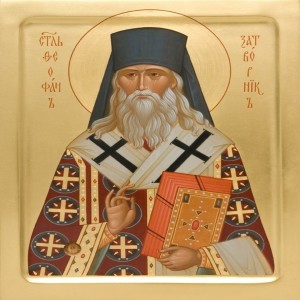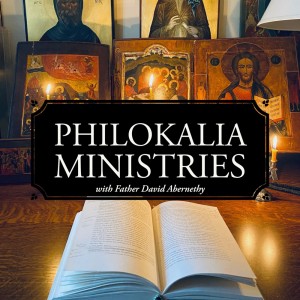
- Podcast Features
-
Monetization
-
Ads Marketplace
Join Ads Marketplace to earn through podcast sponsorships.
-
PodAds
Manage your ads with dynamic ad insertion capability.
-
Apple Podcasts Subscriptions Integration
Monetize with Apple Podcasts Subscriptions via Podbean.
-
Live Streaming
Earn rewards and recurring income from Fan Club membership.
-
Ads Marketplace
- Podbean App
-
Help and Support
-
Help Center
Get the answers and support you need.
-
Podbean Academy
Resources and guides to launch, grow, and monetize podcast.
-
Podbean Blog
Stay updated with the latest podcasting tips and trends.
-
What’s New
Check out our newest and recently released features!
-
Podcasting Smarter
Podcast interviews, best practices, and helpful tips.
-
Help Center
-
Popular Topics
-
How to Start a Podcast
The step-by-step guide to start your own podcast.
-
How to Start a Live Podcast
Create the best live podcast and engage your audience.
-
How to Monetize a Podcast
Tips on making the decision to monetize your podcast.
-
How to Promote Your Podcast
The best ways to get more eyes and ears on your podcast.
-
Podcast Advertising 101
Everything you need to know about podcast advertising.
-
Mobile Podcast Recording Guide
The ultimate guide to recording a podcast on your phone.
-
How to Use Group Recording
Steps to set up and use group recording in the Podbean app.
-
How to Start a Podcast
-
Podcasting
- Podcast Features
-
Monetization
-
Ads Marketplace
Join Ads Marketplace to earn through podcast sponsorships.
-
PodAds
Manage your ads with dynamic ad insertion capability.
-
Apple Podcasts Subscriptions Integration
Monetize with Apple Podcasts Subscriptions via Podbean.
-
Live Streaming
Earn rewards and recurring income from Fan Club membership.
-
Ads Marketplace
- Podbean App
- Advertisers
- Enterprise
- Pricing
-
Resources
-
Help and Support
-
Help Center
Get the answers and support you need.
-
Podbean Academy
Resources and guides to launch, grow, and monetize podcast.
-
Podbean Blog
Stay updated with the latest podcasting tips and trends.
-
What’s New
Check out our newest and recently released features!
-
Podcasting Smarter
Podcast interviews, best practices, and helpful tips.
-
Help Center
-
Popular Topics
-
How to Start a Podcast
The step-by-step guide to start your own podcast.
-
How to Start a Live Podcast
Create the best live podcast and engage your audience.
-
How to Monetize a Podcast
Tips on making the decision to monetize your podcast.
-
How to Promote Your Podcast
The best ways to get more eyes and ears on your podcast.
-
Podcast Advertising 101
Everything you need to know about podcast advertising.
-
Mobile Podcast Recording Guide
The ultimate guide to recording a podcast on your phone.
-
How to Use Group Recording
Steps to set up and use group recording in the Podbean app.
-
How to Start a Podcast
-
Help and Support
- Discover

Tonight St. Theophan continues to take Anastasia through the various stages where one gradually gives oneself over to the passion. There is no obligation to commit a sin; there is only a kind of inner self-delusion taking place. We might not commit a sin but nonetheless we are giving ourselves over to the inclination and by considering the thoughts that lead to the passion they become written upon our hearts. This being so, we inevitably become more vulnerable to future attacks. It is for this reason that we must prevent ourselves from getting to the point where we begin to pre-meditate on how to commit an act of sin. Theophan warns Anastasia that the fear of God as easily set aside as is our conscience. Both are dismissed and we move swiftly away from them in order to feel uninhibited in the committing of a sin. Having reached this stage we are unable to strike it out of our hearts easily simply through a kind of verbal denial. The inclination to the sin attaches itself to us and we begin to taste its unpleasant fruits. Grace then deserts us and we feel the weight of the sin crush us. We expect paradise from the satisfaction of the passion. We mimic Adam and Eve who gave themselves over to the delusion - “For ye shall be as gods.” However, when the delusion fails, we find ourselves simply diminished and our hearts filled with anguish and emptiness. And so, Theophan tells Anastasia that she must act quickly to banish such thoughts, desires, and feelings as soon as they manifest themselves. Procrastination is our enemy. Drive away the thought, the feeling, the desire, and the inclination toward the passion disappears.
----
Text of chat during the group:
00:23:06 Mark Cummings: This book should be required reading in Catholic high schools
00:23:53 Joseph Muir: Sadly, I imagine that it wouldn’t readily be considered, due to the author be a saint of the Orthodox Church, and not Catholic
00:24:57 Mark Cummings: sadly, probably true
00:32:46 Joseph Muir: To be fair, I do think that, in a very real sense, Eastern Christianity (including Catholicism) is Christianity’s best kept secret. Point being, many simply never come in contact with some of these great writers, and some even know the Greek fathers of the church do the degree that they’re commemorated on the western calendar. The difference with an Eastern Christian is that the theology of these saints is lived and breathed in the daily Byzantine prayers
00:33:50 Joseph Muir: One is far more likely to come in contact with non-Catholic luminaries like CS Lewis than St Theophane the Recluse
00:37:56 Mark Cummings: It took me 55 years to find Saint Theophan. I read 7 or so CS Lewis books by the time I was 18
00:37:58 John Clark: I think the nuns that taught at my school missed the memo on the anger passion..We were criminally assaulted numerous times....personally 20 times ....mostly beat with boards.....the last time for me was a round house sucker punch closed fist by a beefy nun in the 7th grade..
00:39:02 Wayne Mackenzie: Agreed, including the Divine Liturgy, the hours and other prayers have the theme of repentance and purity of heart.
00:39:03 Andrew Ewell: Would Cassian’s list of passions be a straightforward list across the board of the passions which the Father’s have in mind?
00:40:24 Andrew Ewell: Ok
00:45:07 Joseph Muir: I’m sorry that you had to go through that, John Clark😞
00:46:57 Mark Cummings: John, that is horrible. Robin might say "Holy PTSD, Batman" I am sorry to hear that you went through that
00:47:18 Wayne Mackenzie: John, Corporal punishment was very common in schools at one time..
00:53:10 St. Elias: “I became as a deaf man…” Psalm 37 (Matins)
00:54:34 Erick Chastain: The difference between theophany/climacus and Aquinas is the difference between the stoics and Aristotle basically
00:56:14 Edward Kleinguetl: Abba Isaiah of Scetis believes that the passions were distorted: The person, then, who wishes to attain this natural state removes all his carnal desires in order that God may establish him in the state according to nature. Desire is the natural state of intellect because without desire for God there is no love … but the enemy twisted this into shameful desire, a desire for every impurity. Ambition, also, is the natural state of the intellect for without ambition there is no progress toward God, as it is written in the epistle, be ambitious of the higher gifts [1 Cor. 12:31]. However, our godly ambition has been turned into an ambition that is contrary to nature, so we are jealous, envious, and deceitful toward each other.
00:56:28 Erick Chastain: Aquinas harmonizes the two as follows: the passions according to the eastern fathers (influenced by the stoics through evagrius) are inordinate passions in the Aquinas sense. For Aquinas, the passions themselves if they are according to nature/reason are without sin
00:57:12 Andrew Ewell: Thanks Eric
00:57:33 Joseph Muir: I stumbled upon this last night, but found it to be a fascinating read (it’s a long discussion/debate between Catholics and Orthodox regarding various aspects of Greek vs Latin theology; I found the arguments on both sides to generally be very cogent and respectful, with my hot take being that our differences are far less vast than some of our more polemical apologists may make it seem): http://forums.orthodoxchristianity.net/threads/body-blood-soul-and-divinity-of-the-eucharist.77167/?fbclid=IwAR28KWJBA2fR0i27SiTkzOea19PjCWN9lfmkwGduGK8OuEqFtiJT8-JcvTs
00:59:46 Andrew Ewell: Thanks Joe
01:03:47 sue and mark: exodus 90 is great!
01:04:38 Mark Cummings: Exodus 90 is great...I would not tie it directly to the desert fathers though
More Episodes
 2026-02-20
2026-02-20
 305
305
 2026-02-10
2026-02-10
 381
381
 2026-02-10
2026-02-10
 349
349
 2026-01-31
2026-01-31
 385
385
 2026-01-22
2026-01-22
 398
398
 2026-01-15
2026-01-15
 393
393
 2026-01-08
2026-01-08
 406
406
 2026-01-01
2026-01-01
 449
449
 2025-12-23
2025-12-23
 596
596
 2025-12-17
2025-12-17
 530
530
Create your
podcast in
minutes
- Full-featured podcast site
- Unlimited storage and bandwidth
- Comprehensive podcast stats
- Distribute to Apple Podcasts, Spotify, and more
- Make money with your podcast
It is Free
- Privacy Policy
- Cookie Policy
- Terms of Use
- Consent Preferences
- Copyright © 2015-2026 Podbean.com


